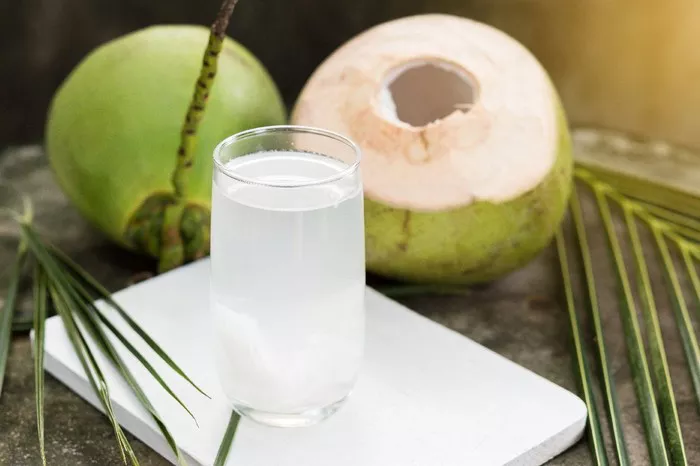As a mother embarks on her breastfeeding journey, ensuring an ample milk supply becomes paramount. While there are various methods and supplements touted to enhance lactation, one natural remedy gaining attention is coconut water. Renowned for its hydrating properties and rich nutrient content, coconut water has sparked curiosity regarding its potential to augment milk production. In this comprehensive exploration, we delve into the scientific underpinnings, anecdotal evidence, and practical considerations surrounding coconut water’s role in supporting lactation.
Understanding the Dynamics of Lactation
Before delving into the potential benefits of coconut water for lactation, it’s crucial to grasp the physiological mechanisms underlying milk production. Lactation is a complex process orchestrated by a delicate interplay of hormones, primarily prolactin and oxytocin. Prolactin, secreted by the pituitary gland, stimulates milk synthesis within mammary glands, while oxytocin triggers the let-down reflex, facilitating milk ejection during nursing sessions.
Factors influencing lactation encompass maternal health, nutrition, hydration, and hormonal balance. Adequate fluid intake is essential for optimal lactation, as dehydration can impede milk production. Therefore, identifying hydrating beverages that offer additional nutritional benefits, such as coconut water, holds promise for lactating mothers.
The Nutritional Profile of Coconut Water
Coconut water, often dubbed “nature’s sports drink,” is the clear liquid found within young green coconuts. Unlike coconut milk, which is derived from the grated flesh of mature coconuts, coconut water is low in calories and fat, yet rich in essential nutrients. This refreshing beverage is esteemed for its electrolyte composition, comprising potassium, sodium, calcium, magnesium, and phosphorus, which are pivotal for fluid balance, muscle function, and nerve signaling.
Moreover, coconut water is a natural source of vitamins, including vitamin C, B-complex vitamins, and minerals like manganese and zinc. Its electrolyte content and isotonic nature make it a popular choice for rehydration and replenishing electrolytes lost through sweat during physical exertion or breastfeeding.
Exploring Coconut Water’s Potential Impact on Lactation
While scientific research specifically investigating coconut water’s effect on milk supply is limited, anecdotal reports and traditional wisdom hint at its potential benefits for lactating mothers. Proponents of coconut water consumption during breastfeeding assert that its hydrating properties, coupled with its nutrient profile, can support lactation by ensuring adequate fluid intake and replenishing essential electrolytes.
Potassium, one of the prominent electrolytes in coconut water, plays a crucial role in regulating cellular function, muscle contractions, and nerve transmission. Some lactation consultants suggest that maintaining optimal potassium levels through coconut water consumption could positively influence milk synthesis and flow. However, rigorous scientific studies are warranted to substantiate these claims and elucidate the precise mechanisms involved.
Furthermore, coconut water’s natural sweetness and mild flavor make it an appealing alternative to plain water for mothers who struggle to meet their fluid intake requirements. Encouraging breastfeeding mothers to stay hydrated with hydrating beverages like coconut water may indirectly support lactation by preventing dehydration, which can compromise milk production and quality.
Evidence-Based Insights and Clinical Considerations
While the anecdotal evidence surrounding coconut water’s role in enhancing milk supply is intriguing, it’s essential to approach the topic with a critical lens, especially in the absence of robust scientific data. Lactation consultants and healthcare providers emphasize the importance of individualized care and evidence-based practices when addressing lactation concerns.
For mothers considering incorporating coconut water into their breastfeeding routine, consulting with a healthcare professional or lactation specialist is advisable. Factors such as maternal health status, dietary preferences, allergies, and electrolyte balance should be taken into account to ensure safe and appropriate consumption.
Additionally, it’s crucial to recognize that while coconut water offers hydration and nutritional benefits, it should complement a well-rounded diet rather than serve as a sole remedy for lactation challenges. Nutritional adequacy, balanced meals, and sufficient calorie intake are integral components of supporting lactation and maternal health.
Practical Tips for Incorporating Coconut Water into a Breastfeeding Diet
For mothers intrigued by the potential benefits of coconut water for lactation, integrating it into their breastfeeding diet can be straightforward and enjoyable. Here are some practical tips:
1. Choose Natural and Unsweetened Varieties: Opt for pure, unsweetened coconut water without added sugars or flavors to reap the full nutritional benefits without unnecessary additives.
2. Stay Hydrated Throughout the Day: Incorporate coconut water into your daily hydration routine alongside water and other hydrating beverages to ensure adequate fluid intake.
3. Enjoy Coconut Water as a Refreshing Beverage: Sip on coconut water as a refreshing drink between meals or during nursing sessions to stay hydrated and replenish electrolytes.
4. Blend Into Smoothies or Mocktails: Add coconut water to smoothies, fruit juices, or mocktails for a tropical twist and an extra dose of hydration and nutrients.
5. Use in Cooking and Culinary Creations: Incorporate coconut water into cooking savory dishes, such as curries or soups, or use it as a liquid base for rice or quinoa for added flavor and nutrients.
Conclusion
In the realm of lactation support, exploring natural remedies and nutritional strategies can offer holistic approaches to augment milk supply and promote maternal well-being. While scientific research on coconut water’s specific effects on lactation remains limited, its hydrating properties, electrolyte composition, and nutrient profile position it as a promising beverage for breastfeeding mothers.
By incorporating coconut water into a balanced breastfeeding diet and consulting with healthcare professionals as needed, mothers can harness its potential benefits while ensuring optimal hydration and nutrition. As we continue to unravel the complexities of lactation and maternal health, embracing nature’s bounty, such as coconut water, offers a nourishing pathway for supporting breastfeeding mothers on their journey of nurturing their little ones.


